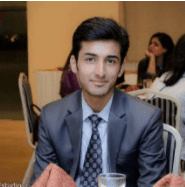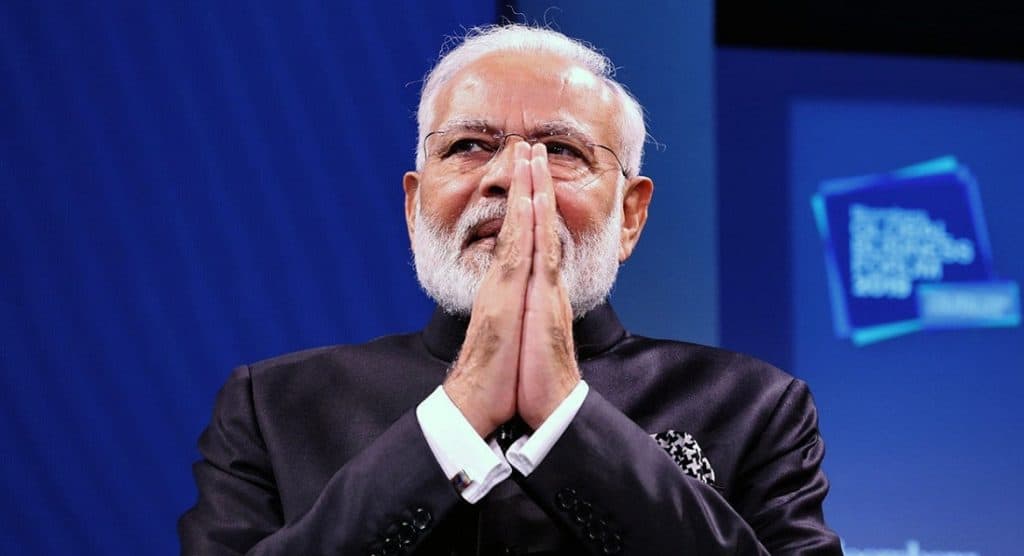Opinion article of the International Institute for Global Strategic Analysis (IIGSA)
By Sarmad Ali Khan and Marta Nuevo Falguera
Guaranteed human rights, protection of its citizens and maintenance of law and order as the few of the core functions of a state where the government serves as an organ to fulfill these prerequisites. These overlapping but distinctly separate functions are often misunderstood.
Generally, a state ensures that its organs – especially the government in power – is not only safeguarding its national interests but also uplifting the constitutional values, social norms, and primary responsibilities. However, it has been observed that many states fail to comply with these essential requirements when they are unable to protect their population, territory, resources etc. making them a ‘failed-state.’
In today’s world, if we analyze the Indian state and the government, we are able to understand the concept of how an extremist ideology supersedes the authority of a state leading it towards gradual failure. To explain the phenomenon, this article would discuss how the Hindutva ideology led by the extremist RSS-wing of the current BJP government is simultaneously tormenting the Indian constitution as well as ripping apart the country’s social fabric. Indian Prime Minister Narendra Modi’s hardliner stance and its application has been on-record since he became the Chief Minister of Gujarat.
Hate speech, mob lynching and other heinous crimes against the minorities have become normal in the country. Uttarakhand remains one of the most unsafe, intolerant and religiously-activated states in India. In 2019, reports highlighted that from the last 10 years, 90% victims of hate crimes in India were Muslims.
These incidents are painted as “communal riots” by the Indian media and officials whereas in reality they are targeted anti-Muslim and anti-minority campaigns to conduct organized killings under the guise of religious provocations. Many BJP officials label the Indian Muslims as “termites” stating that they are “eating away at India’s resources” for which a plan of economic marginalization has been implemented against them.
The growing anti-Muslim sentiment is not exclusive to India. There are other countries throughout the Asian continent where hate speech towards its Muslim population has been the norm for decades. Muslim minorities have also been the target of religious and nationalist leaders in Israel, China, and Myanmar. Authorities consider Muslim communities as outsiders or subversive elements that are trying to erode the country’s stability and assist terrorist groups operating in these countries. Politically-motivated hate speech and communal violence against Muslims are becoming commonplace with the coming into power of staunch nationalists.
In China’s northwestern region of Xinjiang, up to 1,000 Uighurs have reportedly been detained in reeducation camps since 2017. Being a Turkic-speaking minority, Uighurs feel more culturally attached to their Central Asian neighbors, and most of them claim independence from the rest of the country. Myanmar’s Rohingya minority do not fare any better. Over 700,000 Rohingya have fled violence in their native Rakhine State and have been languishing in overcrowded refugee camps in neighboring Bangladesh in the past five years. A similar fate awaits for the 2 million Palestinians isolated in the Gaza Strip and the thousands of families that have been evicted and displaced in East Jerusalem after their houses were demolished.
In recent times, these four countries have been led by nationalist leaders that have garnered a cult around their personality due to their ties with the country’s predominant religion, the country’s history, or the military. In addition, the rise of these leaders has translated into a more exclusive and paranoid society. Critic voices, activists, and foreign organizations have been largely suppressed as the number of arbitrary arrests goes up. Lastly, social media also plays a relevant role: religious leaders and politicians use their large online audiences to spread hate speech regarding minorities or suppress dissidence and activism favoring these minorities.
Israel and Myanmar’s segregation policies exemplify how division induces hatred. Both countries have established poorly maintained ghettos or Muslim no-go zones to ensure security for those they regard as actual citizens of their country. By creating a sense of alarm, the administration has achieved the containment of entire communities. Islamic terrorism has helped strengthen this narrative, portraying any Muslim as a radicalized individual searching to commit acts of terrorism and therefore being treated as possible security threats. Meanwhile, China uses facial-recognition cameras to identify a selected group of people.
Despite being multiethnic and religiously-diverse nations, the concept of melting pot societies is increasingly rebuked in countries like India. A recent study from the Pew Research Center identified that increasingly many Indians favor patchwork societies instead. These patchwork societies endorse the definition of “clear lines” between people of different beliefs. Nationalist governments are taking advantage of the growing divide along religious lines to foster an environment of distrust, ignorance, and fear that fuels hate speech and violence.
Furthermore, to validate the mythological reality of Indian secularism, we would shift our focus towards the treatment of Dalits in modern-day India. The upper-castes of India have carried out discrimination against Dalits by denying them of employment, education and equal social status. An average of 11 Dalits commit suicide every year based on statistics from 2015 – 2021. It is ironic to note that Bhimrao Ramji Ambedkar, famously known as the Father of Indian Constitution because he drafted the Indian Constitution, was a Dalit by caste. This xenophobic approach has defiled the constitutional integrity of India by out-casting that very group which made its legal framework. Human Rights Watch’s 2021 report quoted the Indian government’s data stating that crimes against Dalits increased by 7% in 2019.
Ever since the election of Narendra Modi in 2014, Hindu supremacist organizations like the Rashtriya Swayamsevak Sangh (RSS) have been given a bigger platform to spread fake news and incite their followers to commit crimes against national minorities, particularly against Muslims. The same can be said of the Buddha Dhamma Philanthropy Foundation in Myanmar. The foundation has received several accusations of spreading Buddhist supremacy and anti-Muslim hate speech. In Israel, the anti-Palestinians group, Lehava, calls for the expulsion of all Palestinians from Israel and the Occupied Palestinian Territories (OPT). The government’s connexion with these organizations and other predominant religious groups allows for the approval of racist laws, such as the Citizenship Amendment Act in India, the Race and Religion Protection Laws in Myanmar, the Jewish Nation-State Law in Israel, and China’s imposition of Muslim Ban.
Internationally, sanctions have been limited at best. Political alliances and economic interests play a relevant role in deciding whom to engage and whom to ostracize. Although their acts have spurred an international outcry, Narendra Modi and former Israel Prime Minister Benjamin Netanyahu have boasted good relations with some Muslim countries, particularly over economic matters and shared enmities with regional actors like Iran. However, this trend is not true for all Muslim countries. Turkey, Malaysia, and Bangladesh are antagonizing Modi’s government over the surge in violence towards Muslims. Meanwhile, Algeria and Qatar remain staunch opponents to the Israeli government’s attacks on its Palestinian population.
While governments remain divided, civil society in Muslim countries is predominantly united in denouncing anti-Muslim policies in these countries. Given the lack of government decisiveness and the international community’s inaction, it is up to the civil society and regional groups to exert pressure on their respective governments to create a united front against these policies. Actions by the BJP government in India are inducing volatility in the region and also promoting an exclusive-politics agenda while denying specific groups of their inherent human rights. It is strengthening a wave of lawlessness by getting away with its wrong-doings despite the presence of UN Resolution and applicability of international law. The question under discussion is not only the mandate of the United Nations to intervene in these circumstances for providing fair treatment to the victims but also whether the international community should accept India’s claim of being a secular state and the biggest democracy?
Authors:
Mr. Sarmad Ali Khan
 Mr. Sarmad Ali Khan is the Founder of IIGSA. He is associated with Global Foundation for Cyber Studies and Research, USA as a Policy Researcher. Earlier, Mr. Khan worked at South Asian Strategic Stability Institute (SASSI) University as a Research Fellow.
Mr. Sarmad Ali Khan is the Founder of IIGSA. He is associated with Global Foundation for Cyber Studies and Research, USA as a Policy Researcher. Earlier, Mr. Khan worked at South Asian Strategic Stability Institute (SASSI) University as a Research Fellow.
He has multiple research publications to his credit ranging from book chapters, research papers, and technical reports to white papers. Mr. Khan has been actively engaged with various international think tanks notably SIPRI, TASAM and technical institutes such as BI-MGT.
His areas of research include Cyberspace Strategic Competition between U.S and China, Transforming Deterrence Stability in South Asia and Emergence of New Security Alliances in Asia Pacific.
Ms. Marta Nuevo Falguera
 Ms. Marta Nuevo Falguera is a Non-Resident Research Officer at IIGSA. She also works as a political analyst working with PINKERTON. Her work focuses on foreign policy, security, and international conflicts in Asia-Pacific.
Ms. Marta Nuevo Falguera is a Non-Resident Research Officer at IIGSA. She also works as a political analyst working with PINKERTON. Her work focuses on foreign policy, security, and international conflicts in Asia-Pacific.
She also contributes articles about Asian politics to the Spanish magazine El-Orden Mundial, other media outlets and is associated with Prelia, an Italian think-tank. Ms. Falguera holds a Master’s Degree in International Relations from Ramón Llull-Blanquerna University and a Diploma in International Conflict Management from Utrecht University. During her undergraduate studies, she studied abroad in the U.K. and Japan. Ms. Falguera is a member of the Young Professionals in Foreign Policy. She is based in the Netherlands.
(The views expressed in this article belong only to the authors and do not necessarily reflect the views of World Geostrategic Insights).
Image Credit: Bloomberg







